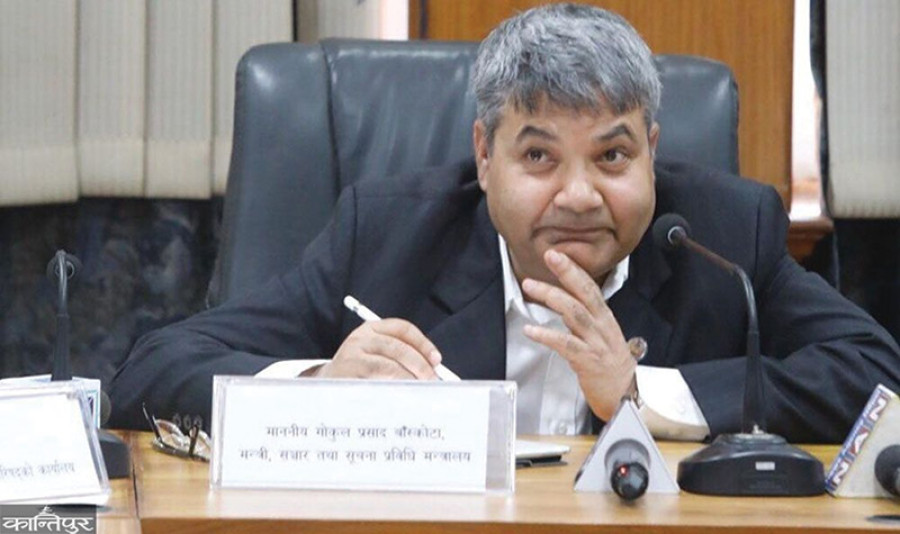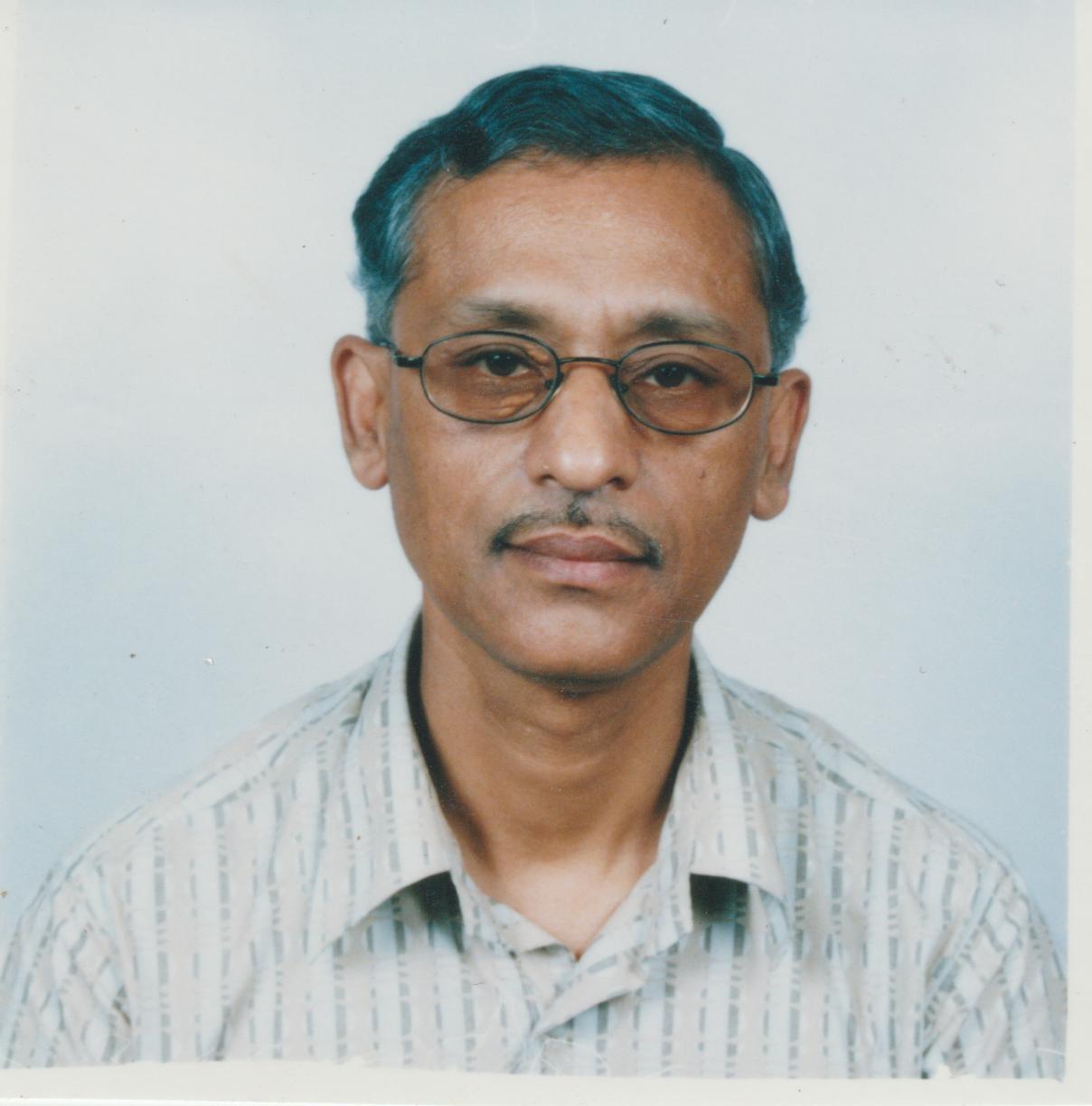Opinion
Spokespersons, please step aside
The call of transparent governance is to hold briefings and provide answers with respect and dignity.
P Kharel
Considering the regular manner in which Prime Minister KP Oli defends individuals, he might be tempted to create and justify the new Ministry of Individual Defence exclusively to defend cabinet members and select party comrades in the Nepal Communist Party (NCP). Oli recently defended President Bidya Devi Bhandari when she addressed the joint parliament with a reference to “my government”. A few days earlier, he had defended the NCP General-Secretary Bishnu Poudel. Previously, he absolved Rabindra Adhikary of any wrongdoing in the widebody aircraft purchase scam even before the panel he formed began its work.
Unbecoming would be an apt word to describe the disorderly manner in which some political appointees to government ministers jump the queue to throw themselves into an area they are not supposed to be seen or even heard much other than whispering their wisdom to their individual bosses. Official spokespersons have been marginalised and shunted into silence while Johnnys-come-lately arrogate to themselves the job and personalise it. When Indian Prime Minister Narendra Modi called to congratulate his Nepali counterpart two years ago, his twitter message read: “I conveyed my best wishes to Sher Bahadur Deuba.” Deuba’s personal secretary was quoted in a newspaper, confirming the high level exchange.
It has become a familiar and fashionable practice for political party workers, appointed as media advisors to government ministries, to step out of line and shoot their mouths off. Being a party activist is one thing, serving as an effective advisor something quite different. Many media advisors’ desire to be seen and heard overtakes the actual discretion, discipline and demands entailed by their official roles. They encroach upon officially designated spokespersons’ jurisdictions. The tip of the existing situation is illustrated by one of Oli’s advisors issuing a signed statement, on behalf of the Prime Minister’s Office.
Communications and Information Technology Minister Gokul Baskota, on April 11, went out of the way to defend his party general-secretary: “He was not involved in the business of any malpractice.” An appropriate approach would have been for Pushpa Kamal Dahal, the co-president of the NCP, or the party publicity department to take a stand on Poudel.
Out of turn
Sujata Koirala, as deputy premier looking after the foreign ministry during the Madhav Kumar Nepal administration, briefed the press on her meeting with the visiting Indian foreign secretary. Her ministry officials and advisor either did not have the time to restrain her or they were too incompetent to be aware of the basic protocal issue involved.
Deputy Prime Minister Ishwar Pokharel, looking after the defence portfolio, recently came under criticism from economists for announcing that the monthly allowance for the elderly would be hiked to Rs5,000 a month in the impending budget estimates.
Similarly, Cabinet spokesman Gokul Baskota’s Thursday press briefings offer little or no information, made on a selective and sketchy basis. The federal government’s score-plus designated spokespersons among joint secretaries should be activated and not subjected to enforced hybernation. Oli’s foreign affairs advisor Rajan Bhattarai in December was quoted by a major online news portal confirming Minister Pradeep Kumar Gyawali’s impending participation in a January conference in India organised by an institution funded and coordinated by the Indian External Affairs Ministry. While the same information was sourced from an unnamed official at the ministry, Bhattarai was handing off the information left and right.
In October 2016, the then prime minister Pushpa Kamal Dahal’s foreign affairs advisor remarked “it is too early” for Nepal to make a public statement on tensions between India and Pakistan that autumn. Naturally, a question springs: Why then break the queue when the ministry concerned is silent? Meticulous care needs to be taken when spokespersons go public.
In the United States, White House Spokesman Sean Spicer, in 2017, triggered an uproar by saying Adolf Hitler did not use chemical weapons. He apologised after his comments drew criticism on social media and elsewhere for overlooking the fact that millions of Jews were killed in Nazi gas chambers. Spice made the assertion at a daily news briefing, during a discussion about the April 4 chemical weapons attack in Syria that killed more than 80 people.
Informed citizenry
As secrecy in democracy spawns unaccountability and unaccountability introduces impunity, the call of transparent governance is to hold briefings and provide answers with respect and dignity. Since the government has the potential to generate a significant volume of information, how the information is disseminated is of critical importance. The following select stories (from 2016 to the recent times) in the news media give an idea of how official spokespersons go silent or are sidelined in important branches of the government in Nepal:
President Bidya Devi Bhandari’s media advisor was quoted giving out information in Rajdhani daily on what transpired during the talks at Shital Niwas where leaders of major parties were present. Bhandari’s personal under-secretary also briefed a news reporter on “discussion with top leaders of the three political parties”.
Vice-President Nanda Bahadur Pun’s press coordinator briefed journalists on a Chinese travel company in Chengdu having promised potential clients for its Nepal package in a meeting with Pun.
During Pushpa Kamal Dahal’s second stint as the prime minister, his foreign affairs advisor, in December 2017, briefed the press on the visiting politburo member of the Communist Party of China and head of the party’s publicity department Liu Qibao’s meeting with the premier. The Foreign Ministry was nowhere audible. Nor was the Prime Minister’s Office Spokesperson to be heard. When Onsari Gharti Magar was the speaker of the House of Representatives in December 2017, her media advisor briefed the press on his boss’s bid to organise a seven-party meet aimed at ending the ongoing deadlock created by the main opposition party’s obstruction to the House proceedings.
Again in December 2017, the then deputy prime minister Krishna Bahadur Mahara’s press advisor briefed journalists about China’s new ambassador’s courtesy call on his boss. Some months earlier the same year, the then minister Ramesh Lekhak’s personal secretary spoke to the press about the fast-track construction being proposed to the army to undertake.
Information call
A long-time editorial staff member and former executive of the National News Agency, Radhesyam Bista was appointed the country’s first chief spokesperson by the Marich Man Singh Shrestha government in 1989. The plan was to eventually appoint spokespersons in various government units, but the interim government led by KP Bhattarai dispensed with it in 1990. After the 1990 Constitution took effect, the demand for spokespersons revived. Spokespersons need to be mobilised, and be seen and heard regularly as constant sources of information, clarifiction, elaboration and correction, to activise and enrich the information landscape.
In all of Nepal’s 77 districts, there is an acute need for official press briefs. The job should be entrusted to candidates having a minimum academic qualification of a Bachelor’s degree in journalism and mass communications. Press briefings are no sparring stints between the organisers and the invitees. Spokespersons should be pro-active in reaching out to the public through all available information outlets, including the mass media.
Kharel is a former editor of The Rising Nepal.




 20.22°C Kathmandu
20.22°C Kathmandu










